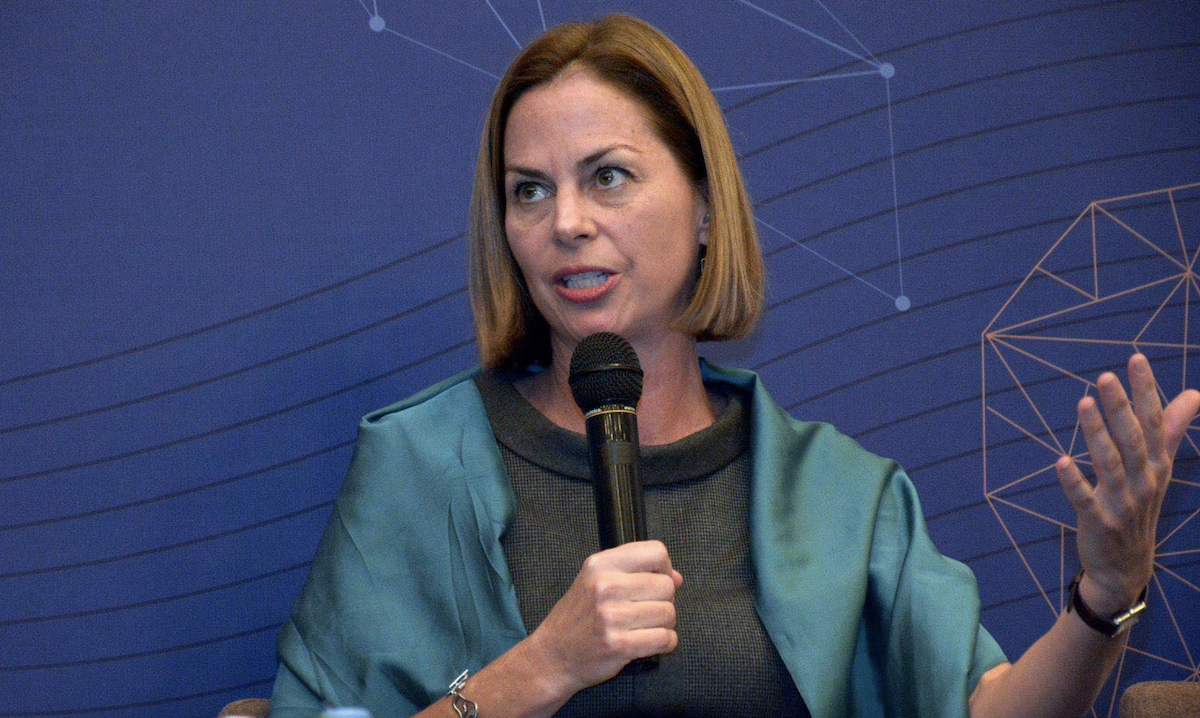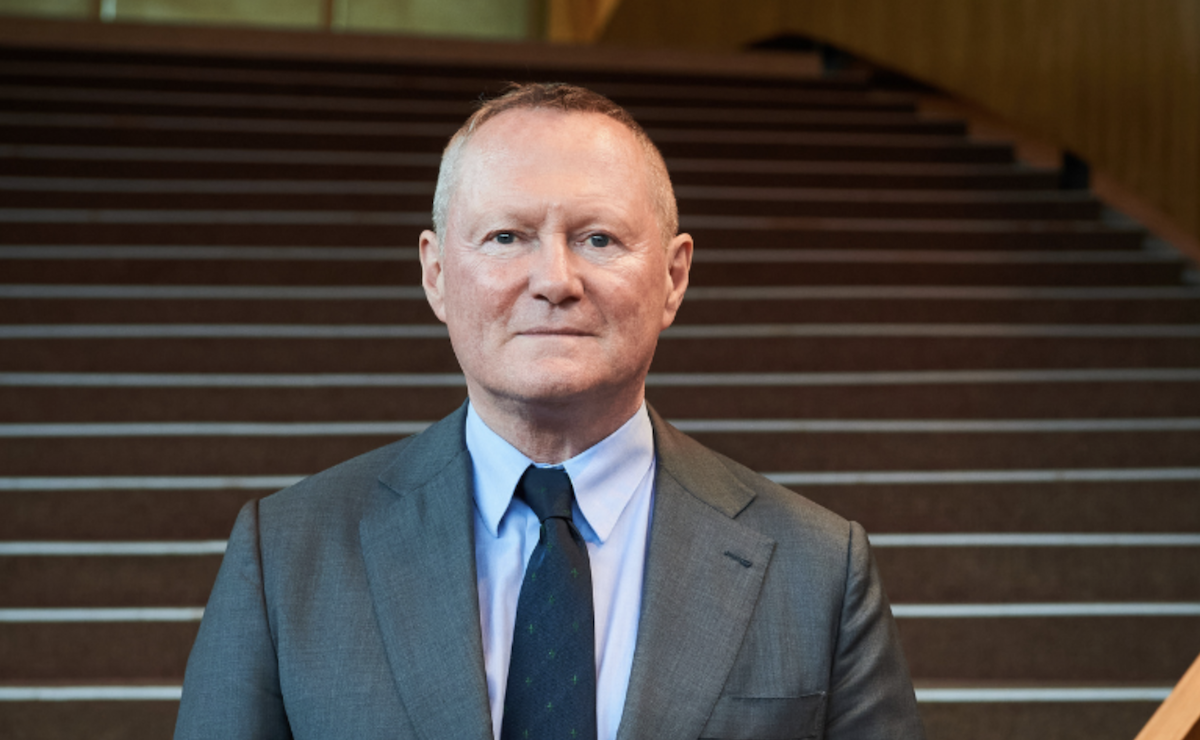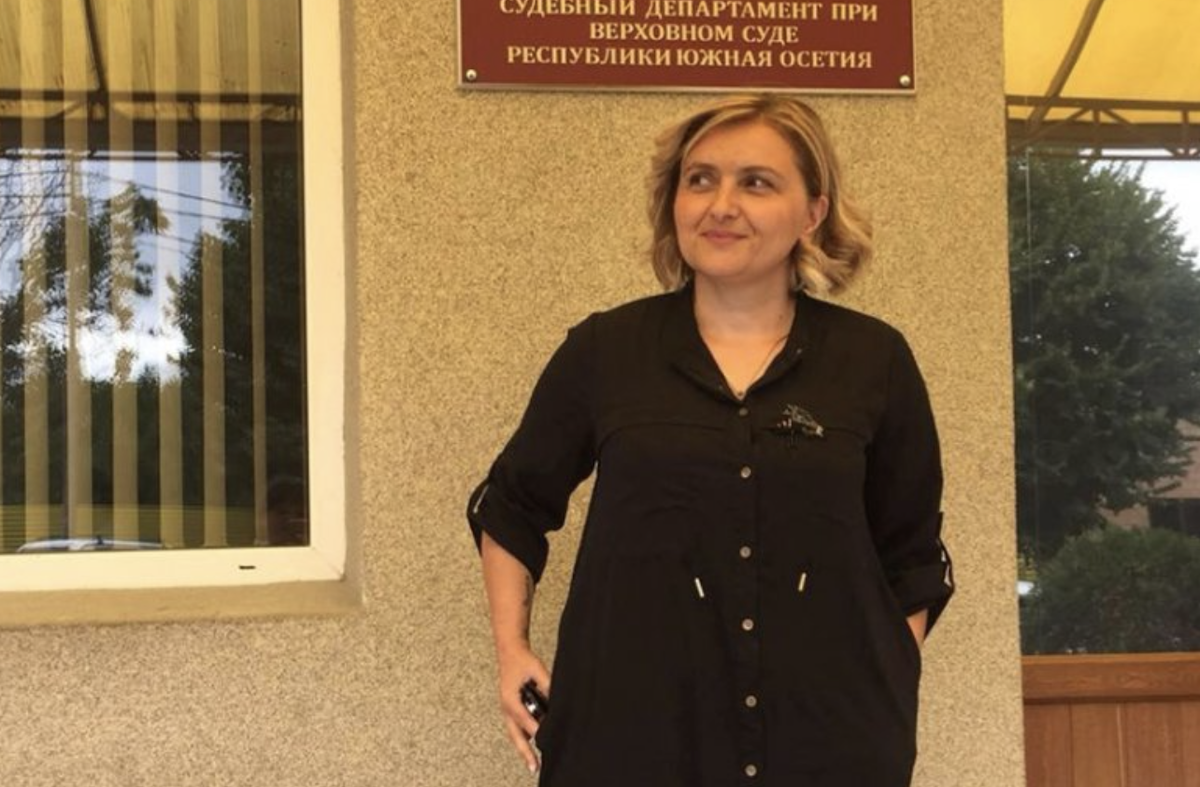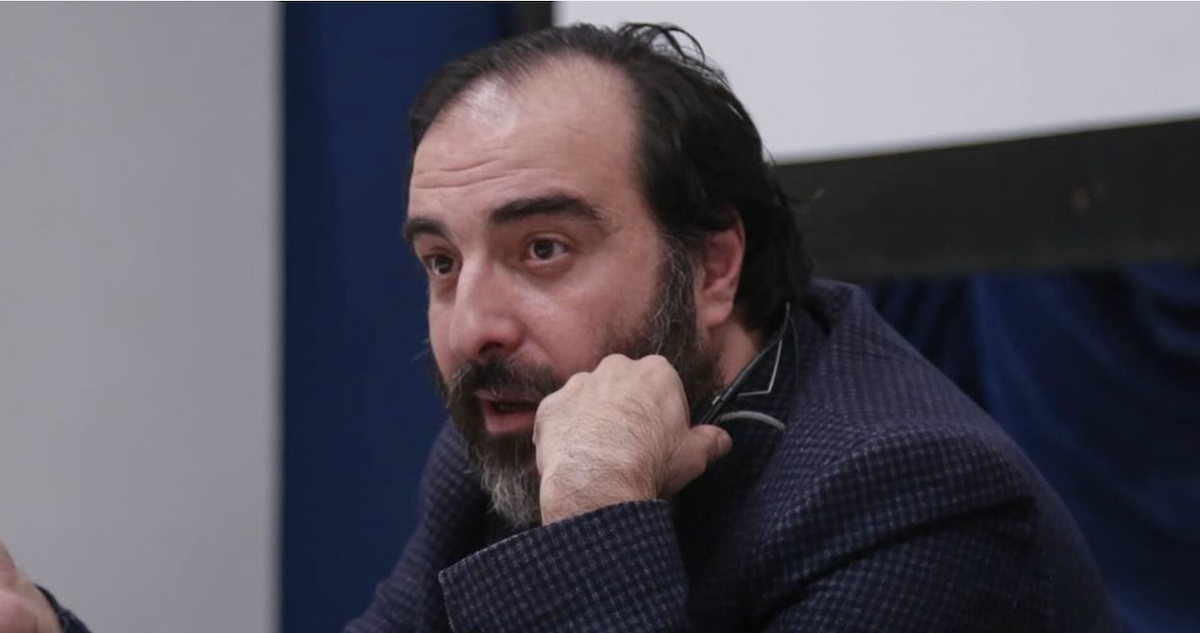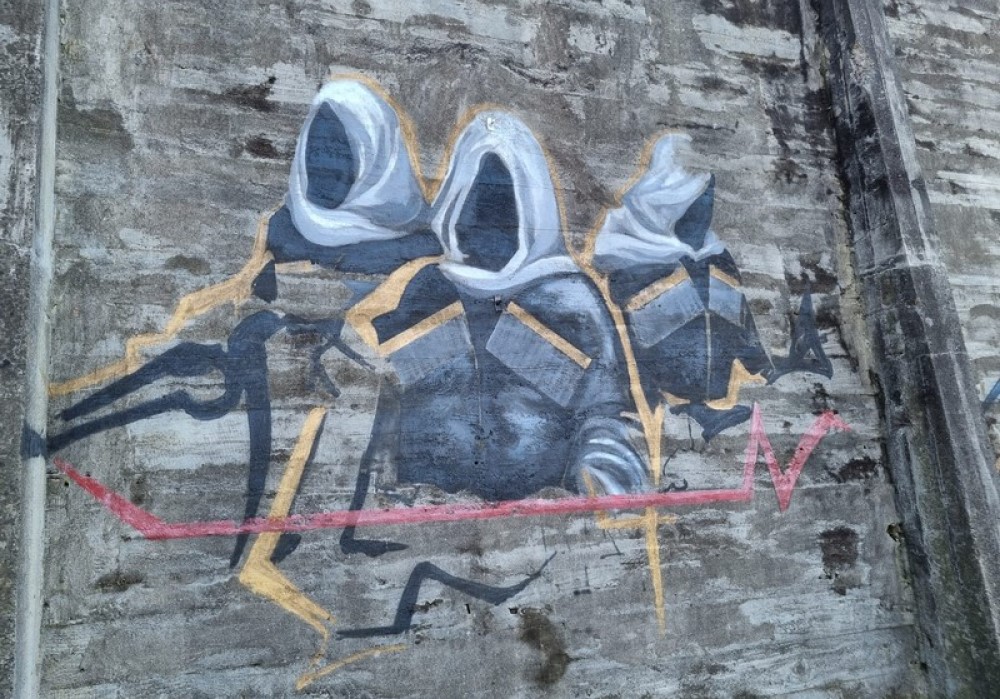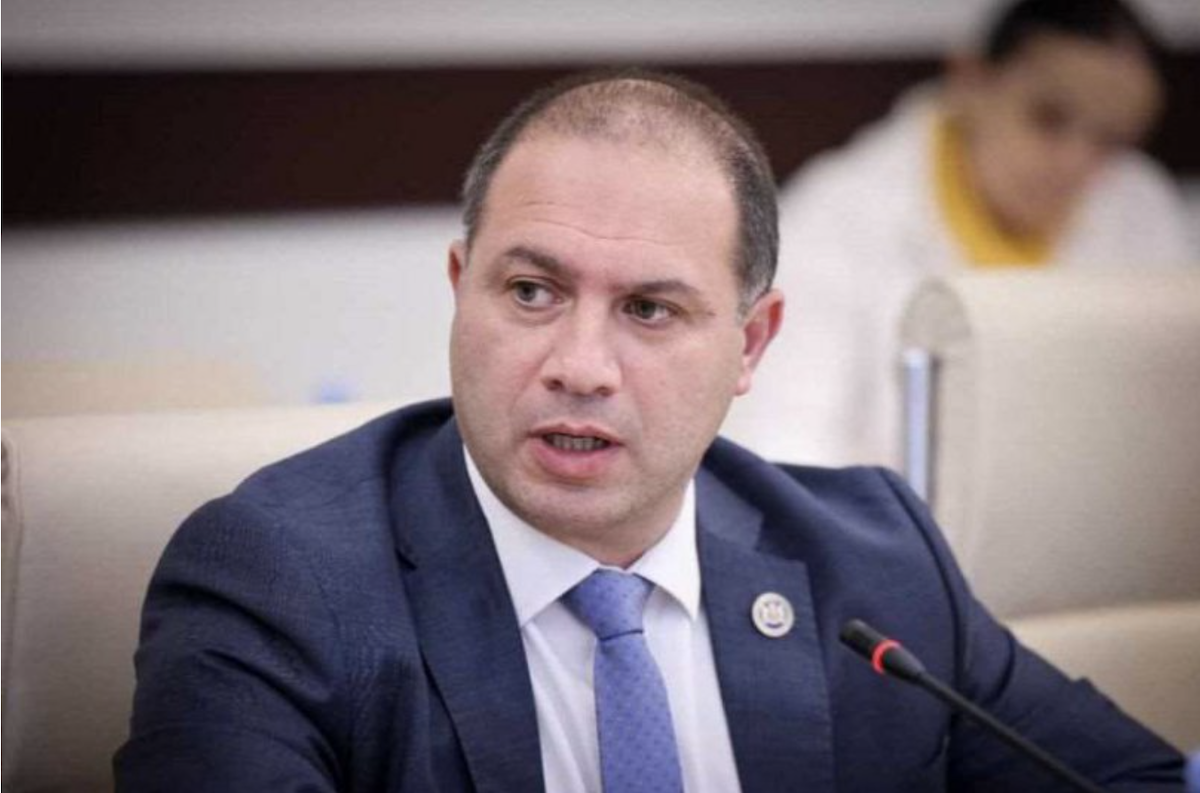Comedian or incumbent – Ukraine elects its next president
Ukraine is returning to the polls on Sunday 21 April in a second round of voting in the presidential elections, pitting the incumbent Petro Poroshenko against comic artist Volodymyr Zelensky.
The latter is the favourite – the polls have it that 73 per cent of voters are ready to vote for him, and only 27 per cent support Poroshenko. On 19 April, the two faced off in a highly touted televised debate at the Olympic Stadium in Kiev.
• Who the presidential candidates in Ukraine are, and why Western partners are wary of them all
• Ukraine and Russia: enemies at war or trade partners?
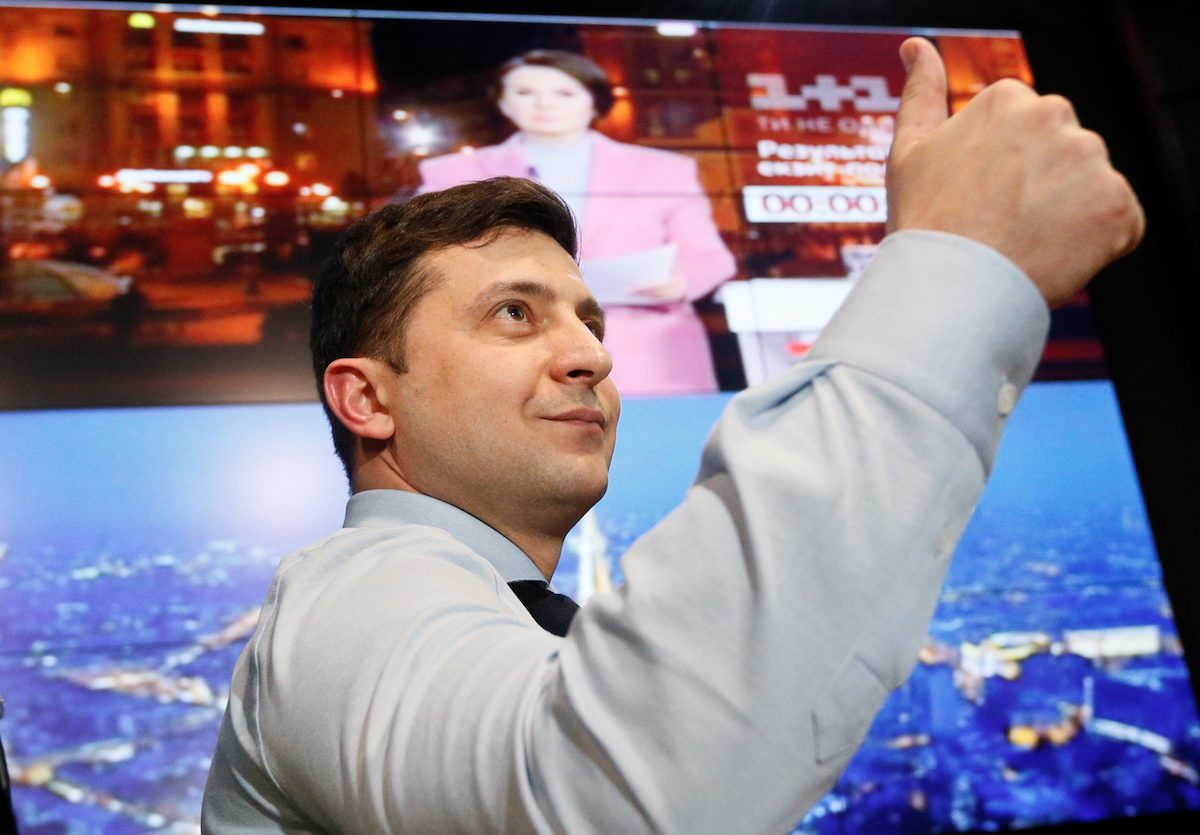
Who is Volodymyr Zelensky?
Vladimir Zelensky is 41 years old. He has a solid track record in show business, but zero public administration experience. He received almost as many votes as his closest competitors, Petro Poroshenko and Yulia Tymoshenko, combined.
There was little doubt that Zelensky would be successful in the first round of elections, and his victory in the second round is very likely. Observers say this can only be hampered by the passivity of the electorate.
The possible future president of Ukraine is known primarily from the television series The Servant of the People, which has been watched by about 20 million people in Ukraine.
He plays history teacher Vasily Goloborodko who by chance becomes the president of the country. The rights to the show have already been bought by Netflix.
Zelensky is also known for his participation on the TV shows Evening Quarter and Evening Kiev, which are considered to be the most popular on Ukrainian television and attract millions of viewers.
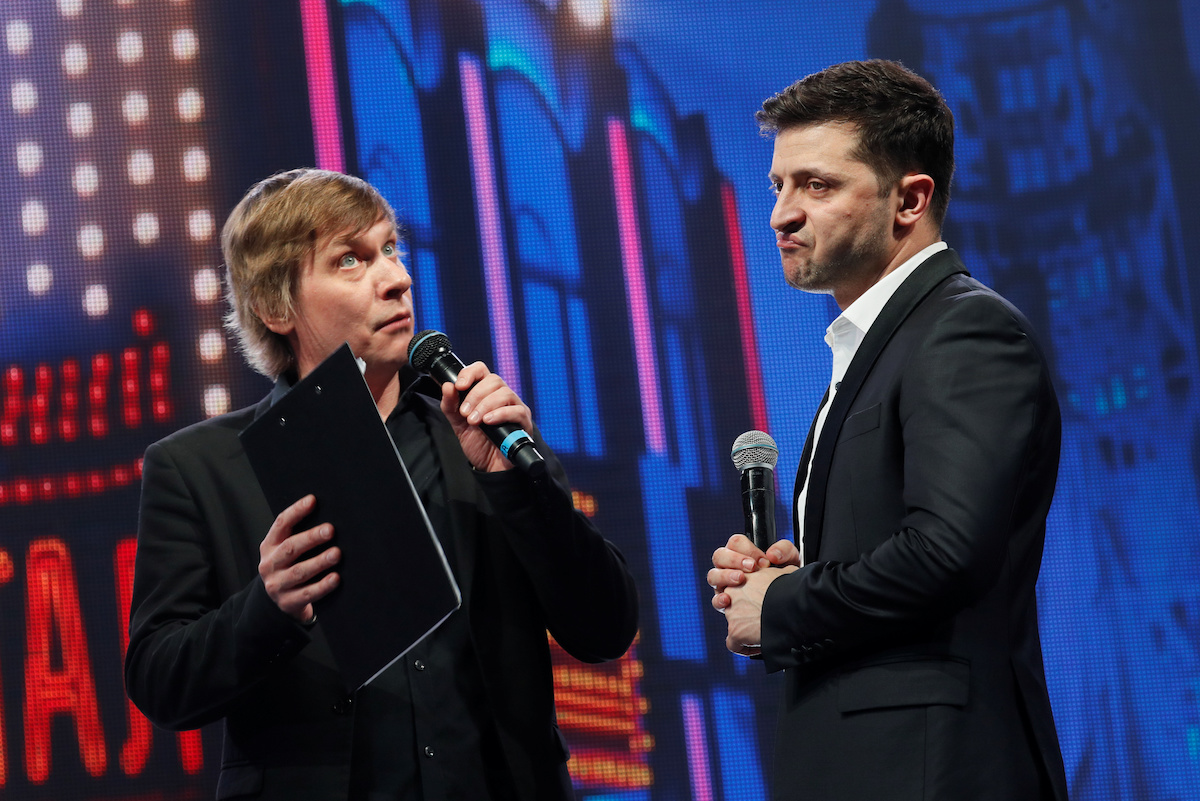
Links to tycoon and Russian money?
Many believe that the Ukrainian oligarch Ihor Kolomoisky was originally behind Zelensky’s candidacy.The incumbent Petro Poroshenko has said that, if elected, Zelensky will be a puppet in the tycoon’s hands, a charge Zelensky denies.
Yet, it was the Kolomoisky-owned TV channel 1+1 that gave Zelensky a powerful platform during the run-up to the first round of the election. The channel, one of Ukraine’s most popular, runs shows produced by Kvartal 95, a studio co-founded by Zelensky.
A study by Reuters indicates that Kolomoisky and Zelensky indeed intersect in many ways.
It turns out the two men have business partners in common: Zelensky uses security staff, also seen in the past accompanying Kolomoisky; a former Kolomoisky adviser is on Zelensky’s campaign team, and at least two vehicles used by Zelensky and his entourage are owned by people or entities linked to Kolomoisky.
However, Reuters reports “none of the evidence demonstrates that Kolomoisky is financing Zelenskiy’s campaign or influencing him”.
Serious accusations against Zelensky were made in connection with his participation in the finances of Russian film companies. Journalists also found out that he has an undeclared villa in the Italian town of Forte dei Marmi, popular with rich and influential Russians.
War, NATO, Russia
But these accusations do not seem to have had a strong impact on his reputation.
Having become the most likely candidate for the presidency, he remains in the role of a simple character of a school teacher from a television series: a humble man far from the world of dirty politics.
Zelensky does not hide the fact that he does not have answers to the most complicated questions facing the country. In particular, the candidate does not have a plan to quickly end the war in the east of Ukraine. He says that whether Ukraine should pursue integration with NATO is an issue that should be decided through a public referendum. As for Russia, he says it ought to make good all the damage it has inflicted on Ukraine over the past years.
“If I ever get to meet Mr Putin, I will tell him: Finally, you have given us back our territories, how much else are you prepared to pay for seizing our lands and supporting the people who took part in the hostilities in the Crimea and Donbas, for lending them a hand on this terrible, cruel, heinous path?” Zelensky told Hromadske TV.
Petro Poroshenko, the other leader in the presidential race

The current president Petro Poroshenko is one of the richest people in Ukraine. The source of his fortune? The chocolate business.
In February 2019, bihus.info uncovered a corruption scheme in the defense industry involving the son of a close friend of the president – the secretary of the National Security and Defense Council, Oleg Gladkovsky. Poroshenko fired Gladkovsky and urged that an investigation be launched.
Poroshenko’s campaign is based on the fact that the army’s combat capability has been strengthened, the treaty on visa-free travel was signed with the European Union, and the Ukrainian Orthodox Church gained autonomy.
Poroshenko’s opponents accuse him primarily of his inability to fight corruption.
Poroshenko leads in the ‘anti-rating’ of candidates: half of the electorate says it would not vote for the current president under any circumstances.

What does the West say?
Poroshenko is in good standing with the Western establishment. Observers at Ukraine’s Hromadske TV say the EU does not like the idea of having to “swap horses midstream”, which is why, initially, it took a somewhat dim view of Zelensky.
However, after Zelensky won most of the votes in most of the regions in Ukraine during the first election round, and secured the support among the military that is at least as big as that enjoyed by Poroshenko himself, the West may have begun seeing him as a serious candidate.
Western commentators view the voting results in Ukraine as part of a global trend.
“Zelenskiy’s rise coincided with voters around the world upending the status quo, propelling anti-establishment forces such as U.S. President Donald Trump and Italy’s 5-Star movement to power,” – Reuters notes.
The main challenge for the future president is the conflict with Russia. It is also important for investors that the next president undertake necessary reforms in the country.
In turn, The New York Times has called Zelensky’s results ‘stunning’:
“The fact that Ukraine works as a real democracy, albeit a troubled one, is often cited as perhaps the most important aspect of the election. Unlike the Potemkin elections in neighboring Russia and Belarus, the competition in Ukraine offered voters a real choice with an unknown outcome.”










